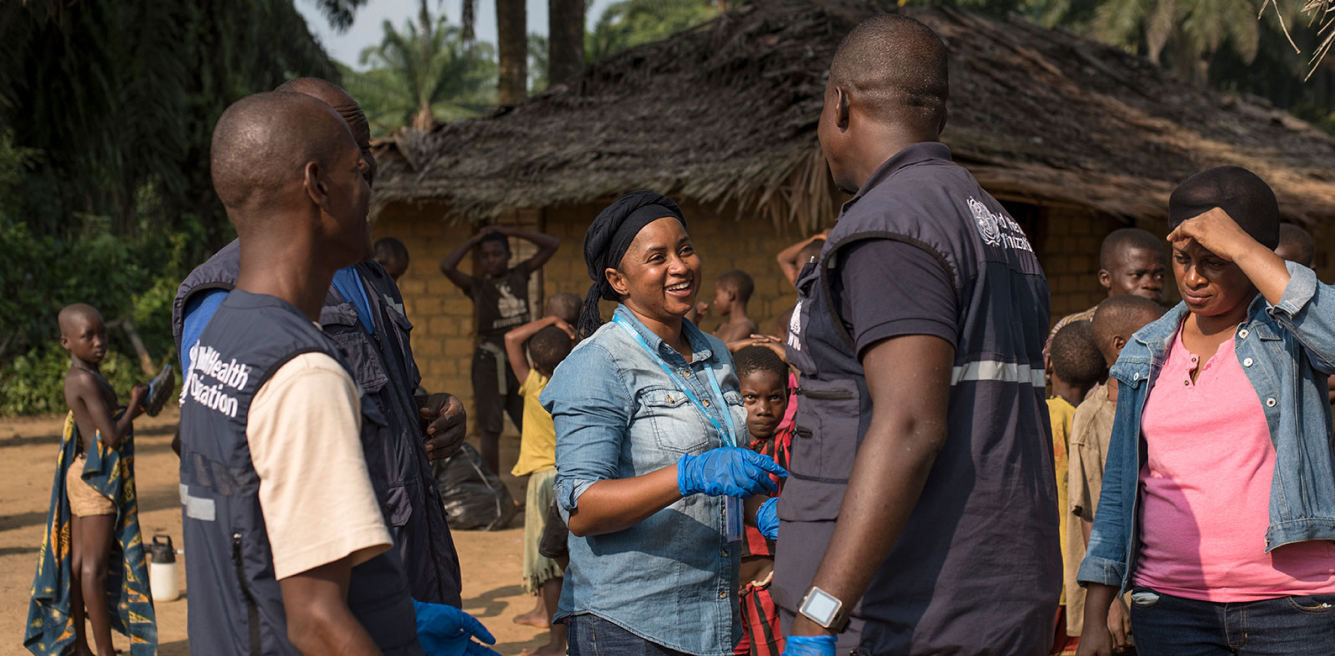
Explore our Journey
of Transformation
The Transformation Agenda of WHO in the African Region 
The Context
An urgent need
for transformation
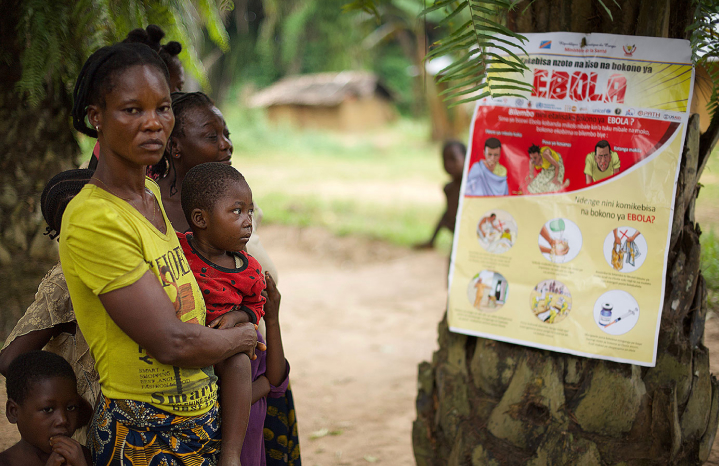
In 2014, the Ebola Virus Disease epidemic struck West Africa, the worst in history in terms of magnitude, geographical scope and duration prior to the COVID-19 pandemic. The epidemic revealed major gaps in the capacity and preparedness for effective responses to critical health events in the affected countries.
As a result, Member States expressed their concerns about the perceived misalignment of the structure and technical capacity of the WHO Secretariat to deliver on its mandate in the African Region.
Defining new priorities
On 1 February 2015, Dr Matshidiso Moeti assumed office as the WHO Regional Director for Africa.
“These are the priorities I commit myself to and would like to be held accountable for throughout my tenure as the WHO Regional Director for Africa.”
Improving health security
Strengthening national health systems
Sustaining focus on the health-related MDGs / SDGs
Addressing the social determinants of health
Transforming the African Region into a responsive and results-driven Organization
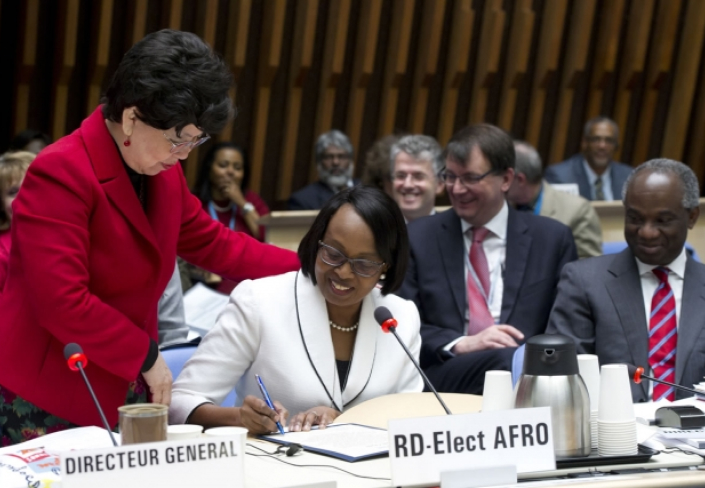
Lifting the curtain
In November 2015, the Regional Director presented the Transformation Agenda to the Sixty-fifth session of the Regional Committee. Member States expressed their appreciation for the Transformation Agenda, congratulated the Regional Director on the progress achieved and further pledged their commitment to fully support its implementation.
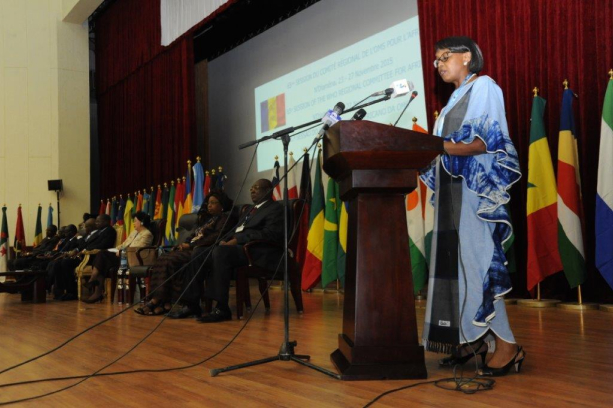
TA PHASE 1: 2015 - 2017
Laying the Foundation
for Change
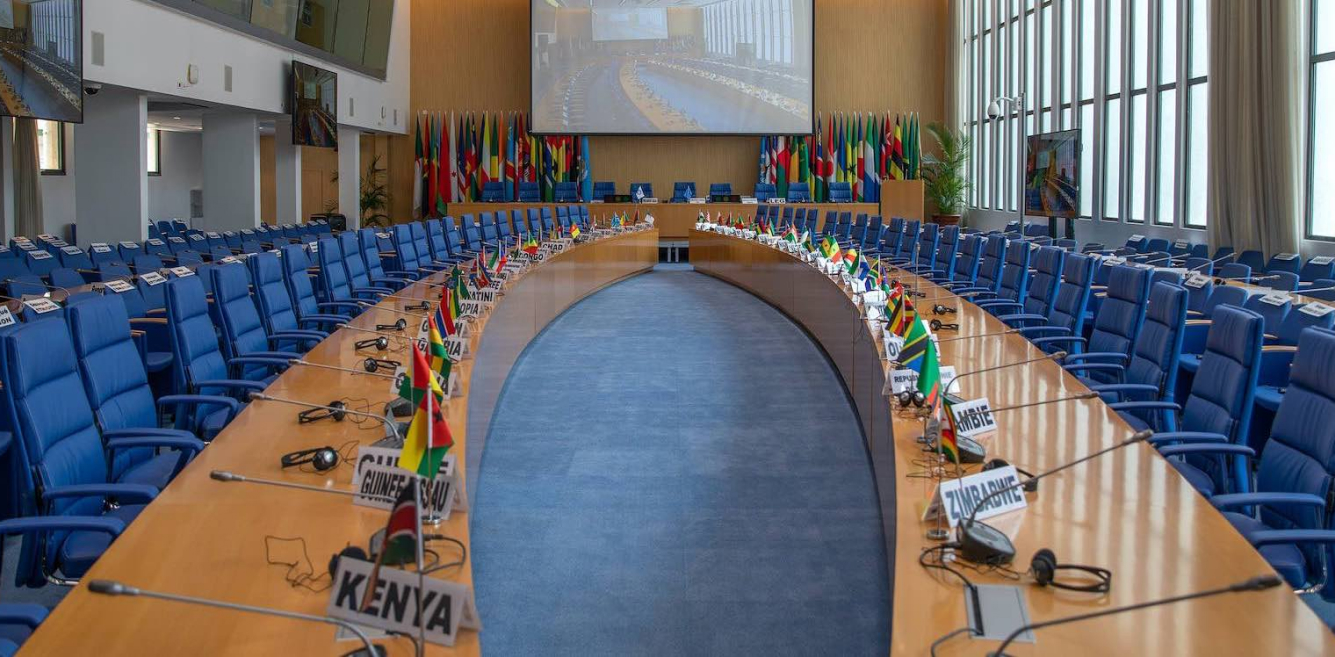
“The Transformation Agenda is a vision and a strategy for change aimed at facilitating the emergence of the WHO that the staff and stakeholders want.”
- Dr Matshidiso Moeti, WHO Regional Director for Africa
The WHO we all want
The Transformation Agenda of the WHO Secretariat in the African Region is a bold and ambitious agenda that seeks to engender a regional health organization that is foresighted, proactive, responsive, results-driven, transparent, accountable, appropriately resourced and equipped to deliver on its mandate; an organization that meets the needs and expectations of its stakeholders. It is a vision and a strategy for change aimed at facilitating the emergence of “the WHO that the staff and stakeholders want”.
Milestones|2015
The first 100 days
The Regional Director's first 100 days in office were very eventful. To better address the prevailing health priorities and to set a clear direction and course, she took early actions to restructure the Regional Office.
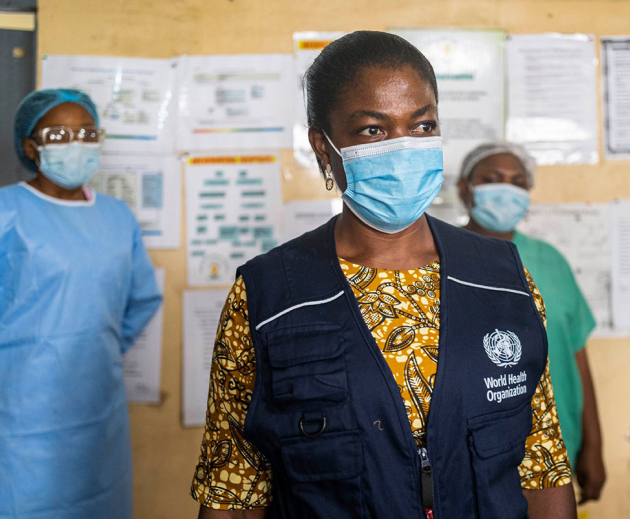

The Health Security and Emergencies (HSE) Cluster was set up to merge the then existing Outbreak Response, International Health Regulations, and Disaster and Emergency Response programmes.

The Noncommunicable Disease (NCD) Cluster was set up to address the emerging threat of NCDs and their risk factors, as well as mental health, violence and injuries.

The Communicable Disease (CDS) Cluster was set up to focus on key priorities in the African Region such as HIV, TB, malaria, NTDs, and public health and the environment.

The Family and Reproductive Health (FRH) Cluster was put in place to focus on health throughout the life course, nutrition and immunization.

The General Management and Coordination (GMC) Cluster was established to help the Region ensure better compliance and financial accountability in all its work.

The Health Systems and Services (HSS) Cluster was to focus on health policy development, financing and access, integrated service delivery, and health information and knowledge management. Essentially, HSS was to contribute to the realization of universal health coverage in the Region.
Newly appointed Regional Director for WHO in the African Region launches the Transformation Agenda
“Building a responsive and results-driven WHO Secretariat in Africa will be central to my term as the Regional Director. Much has been said about WHO's reforms in relation to the Ebola epidemic response and my task is to take the reform agenda forward, and the intention is to fast-track, with support from our Headquarters, certain key areas of reform. We must build our Organization to be more effective, efficient, responsive, accountable and transparent.”
- Dr Matshidiso Moeti acceptance speech in 2015
Africa Health Transformation Programme launched to advance the unfinished MDG agenda
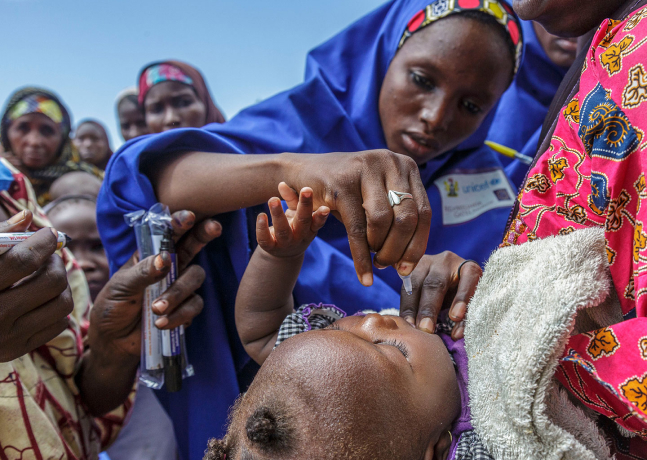
Polio eradication and adolescent health prioritized as TA flagship programmes
The WHO Health Emergencies Programme (WHE) was set up to strengthen detection and response to health threats
The Accountability and Internal Control Strengthening Project (AICS) was launched to improve transparency, accountability and efficiency of business operations
Sustainable Development Goals launched
Milestones|2016
WHO Regional strategy for health security and emergencies 2016-2020 adopted by Member States in Addis Ababa.
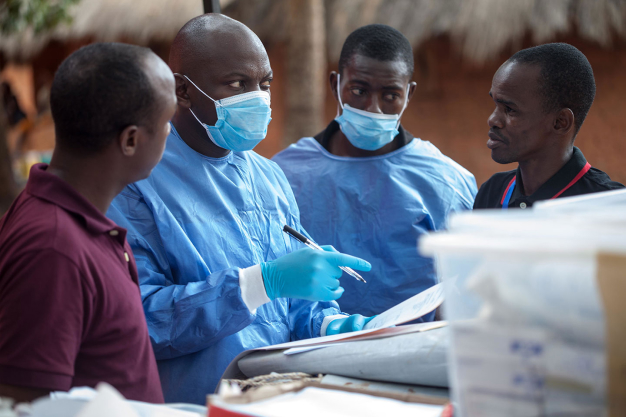
WHO compiles an inventory of all epidemics reported in Africa from 1970 to 2016
Risk and Compliance Unit established
WHO sponsors CNN Best African Health and Medical Journalist Award
Business / Managerial Key Performance Indicators defined for the Organization
Africa Region Results Framework created with technical KPIs defined for the Region
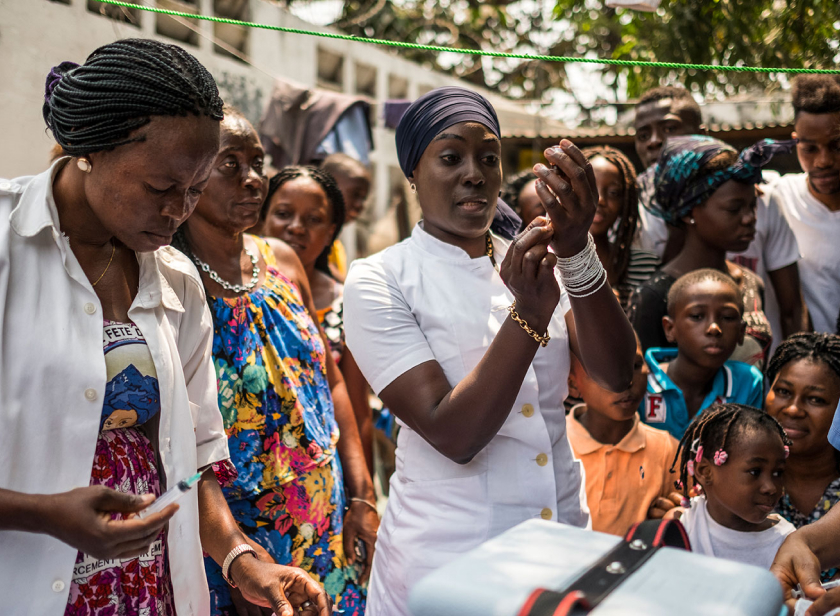
WHO, the Ministries of Health of Angola and the DRC and partners responded to the largest urban outbreak of yellow fever to date: over 10.6 million people vaccinated using the 11 635 800 yellow fever vaccines received in Angola
The five-year Expanded Special Project for Elimination of Neglected Tropical Diseases (ESPEN) was launched
Building on the AUC / WHO commitment on UHC to develop a regional roadmap to accelerate implementation of UHC in the African Region, the Secretariat organized the First Regional Forum on Health Systems Strengthening for UHC and the SDGs in December 2016.
WHO initiated support to countries to develop National Action Plans (NAPs) for antimicrobial resistance in line with the Global Action Plan, and mobilized catalytic funding to enable 25 countries to kick-start their NAP development process.
Milestones|2017
African Heads of State endorsed a declaration for WHO and AUC to accelerate implementation of the International Health Regulations (IHR)
Framework for Health Systems Development towards Universal Health Coverage in the context of the Sustainable Development Goals in the African Region adopted by Member States
Decentralization of WHO Emergencies Cluster - 2 hubs established in Dakar and Nairobi to improve detection and rapid response
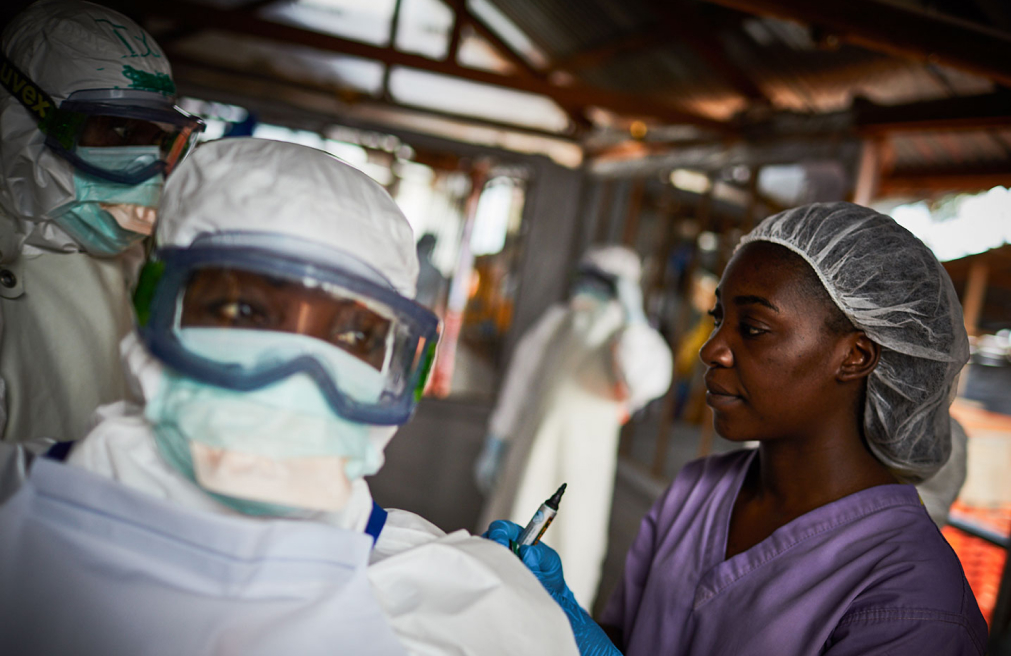
In May 2017, the Democratic Republic of the Congo confirmed a new Ebola outbreak. Within 48 hours of notification, the WHO Country Office and WHE Programme were working seamlessly with the Government and partners to set up a field and alert response system in the Likati health zone.
The WHO Regional Director for Africa re-launches the Harmonization for Health in Africa (HHA) platform.
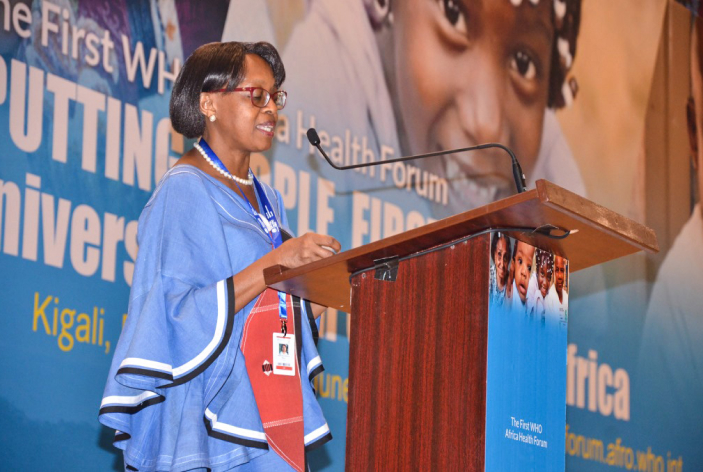
WHO supported 11 countries from the Region to pilot short treatment regimens for MDR-TB. WHO used the evidence to recommend shortening the duration of MDR-TB treatment from 24 to 9-12 months
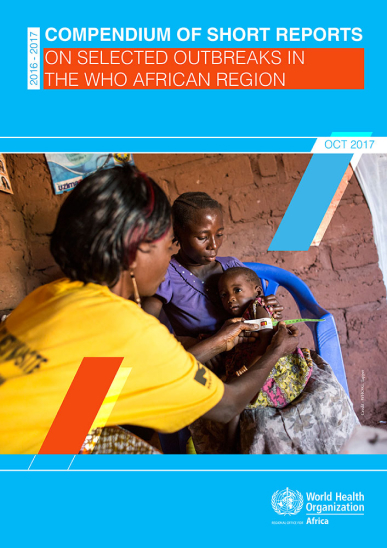
First edition of Compendium of Short Reports on Selected Outbreaks in the WHO African Region published in October 2017
1st Africa Health Forum convened
Staff Ombudsman Office established
AFRO becomes the first WHO region to make WHO Sexual harassment, exploitation and Abuse course mandatory for all staff.
TA PHASE 2: 2018 - 2020
Putting People at the
Centre of Change
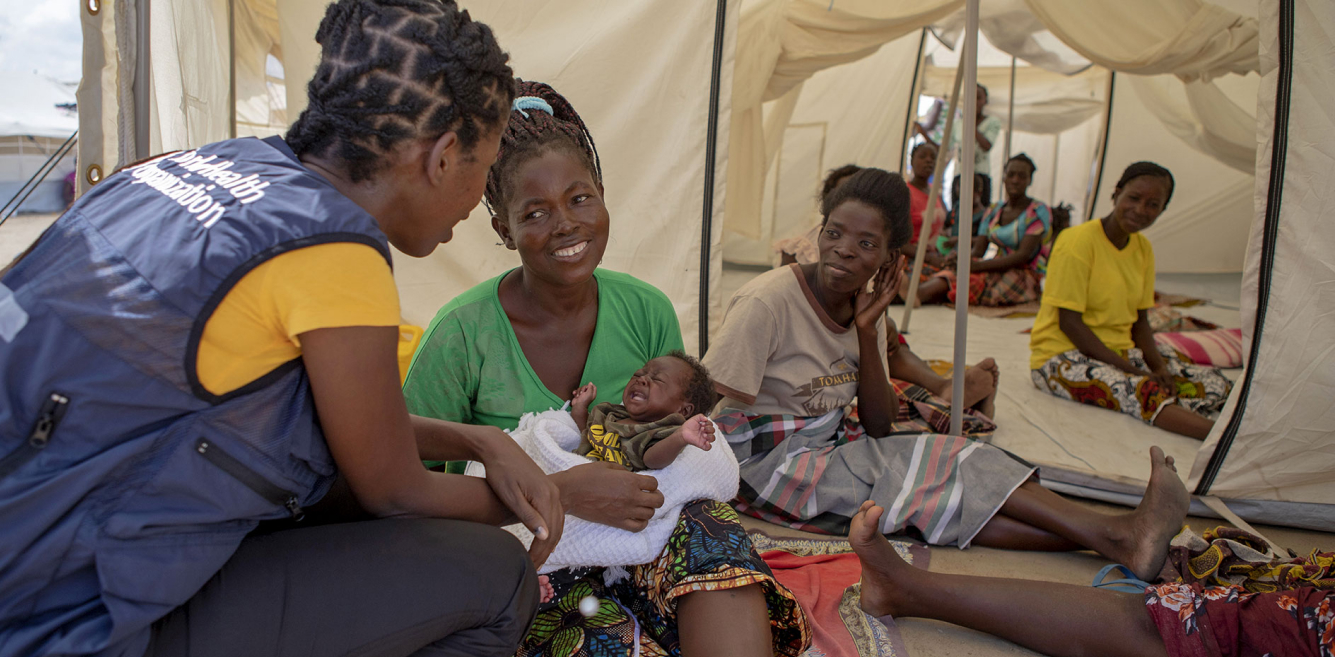
“Changing culture is hard and the willingness to do so must come from within each person who desires to change and make a difference.”
- Dr Matshidiso Moeti, WHO Regional Director for Africa
Sustainable progress in improving health in Africa
The objective of Phase II of the Transformation Agenda was to optimize the technical focus and performance of WHO's work, thus improving the quality of work and ensuring better management of resources to generate value for money, all in support of the priorities of Member States. Its focus is putting people at the centre of change in order to make sustainable progress in improving health in Africa.
Milestones|2018
Change Management Strategy defined; 150 staff volunteers as WHO AFRO change agents
Transformation Agenda and change management included in new staff inductions
African Ministers of Health endorse the draft treaty for the establishment of the African Medicines Agency (AMA)
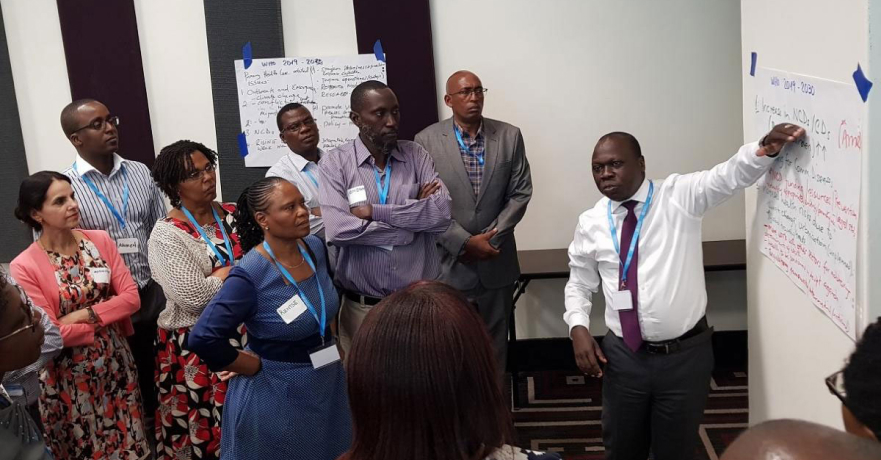
AFRO Pathways to Leadership Training Programme launched
WHO AFRO mandatory inclusion of at least one fully qualified female candidate in all recruitment shortlists results in 2.1% increase in women's representation in the professional and higher category from 28.9% in 2017 to 31% in 2018
WHO-AFRO Expanded Special Project for Elimination of NTDs (ESPEN) supports 23 Member States including two from the Eastern Mediterranean Region (EMRO) in scaling up mass medicine administration campaigns targeting over 40 million people to address the five most prevalent NTDs amenable to preventive chemotherapy (PC-NTDs). These are: lymphatic filariasis, onchocerciasis, soil-transmitted helminthiasis, schistosomiasis and trachoma.
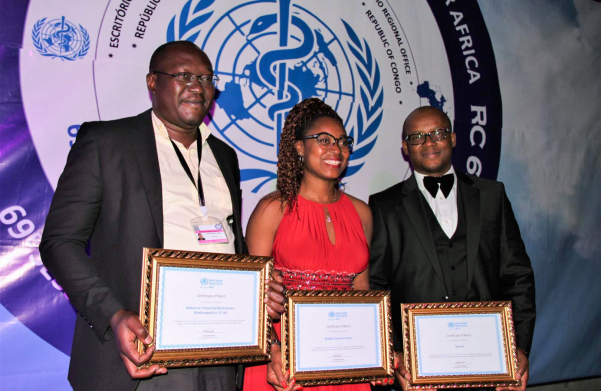
WHO AFRO hosts its inaugural Innovation Challenge
Measures introduced to recruit more local interpreters, pair senior interpreters with junior interpreters, and review the remuneration scale for translation services yields significant cost savings of more than US$ 460 000.
In collaboration with UNFPA, WHO facilitates access to contraception for 185 389 adolescents and young girls in Côte d'Ivoire.
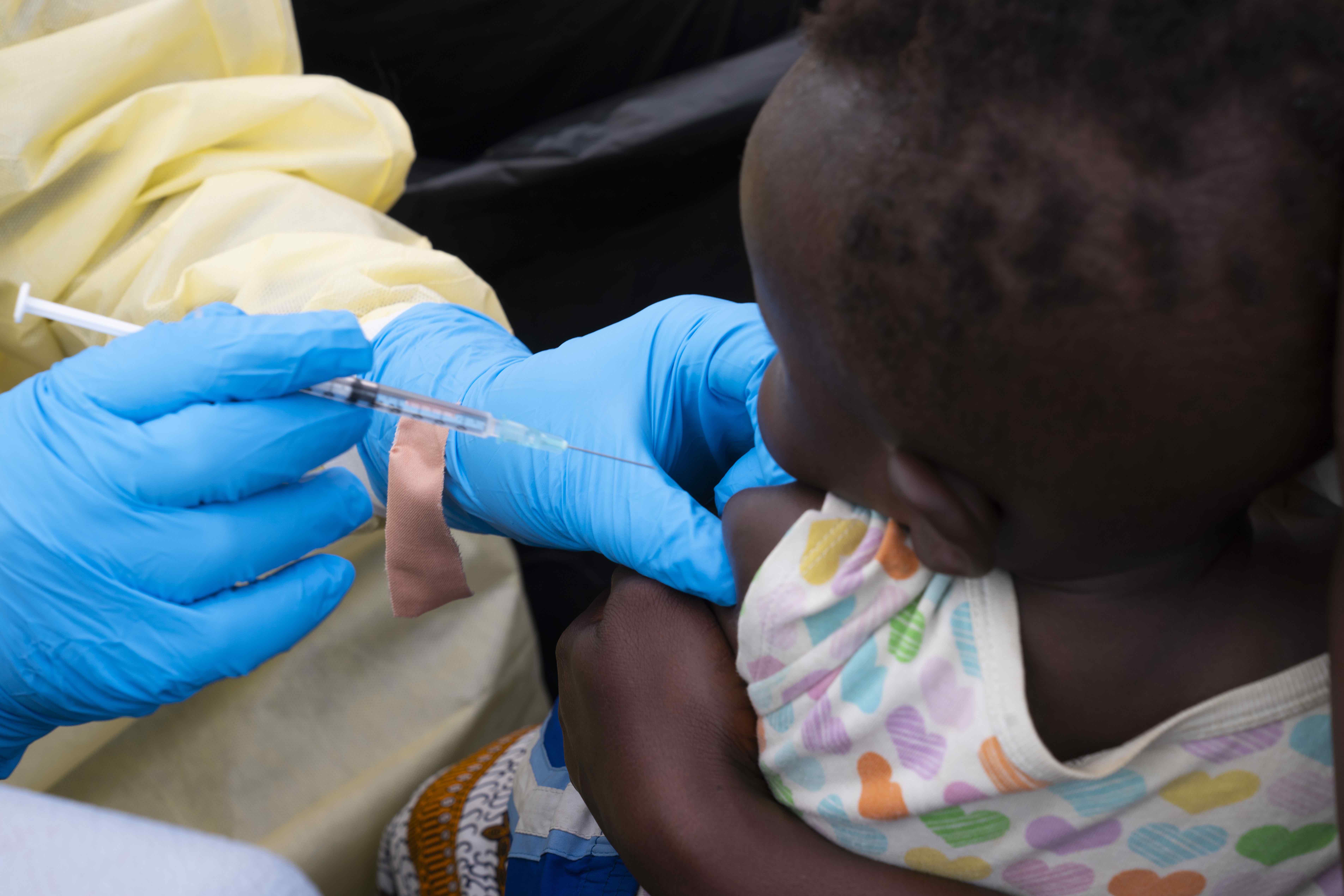
WHO and partners support the Democratic Republic of Congo to vaccinate 147 120 people using the investigational Ebola candidate vaccine (rVSV-ZEBOV).
By December 2018, forty Member States had achieved maternal and neonatal tetanus (MNT) elimination.
Vaccination campaigns to control yellow fever in Congo, Ethiopia, Nigeria, Sierra Leone and South Sudan reach approximately 85 million people.
Milestones|2019
A memorandum of understanding was signed between the WHO Regional Office for Africa and the African Academy of Sciences (AAS) on collaboration in supporting countries to adopt and scale up locally generated innovations.
Functional reviews of all WHO country offices completed
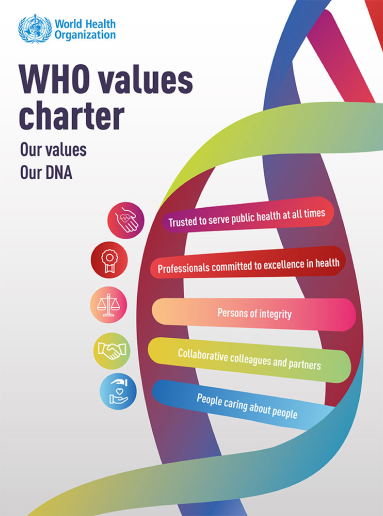
Launch of the WHO Values Charter following the participation of staff from across WHO in the three-day virtual ”values jam”.
100 change agents trained on change management and supported to catalyse organizational culture change.
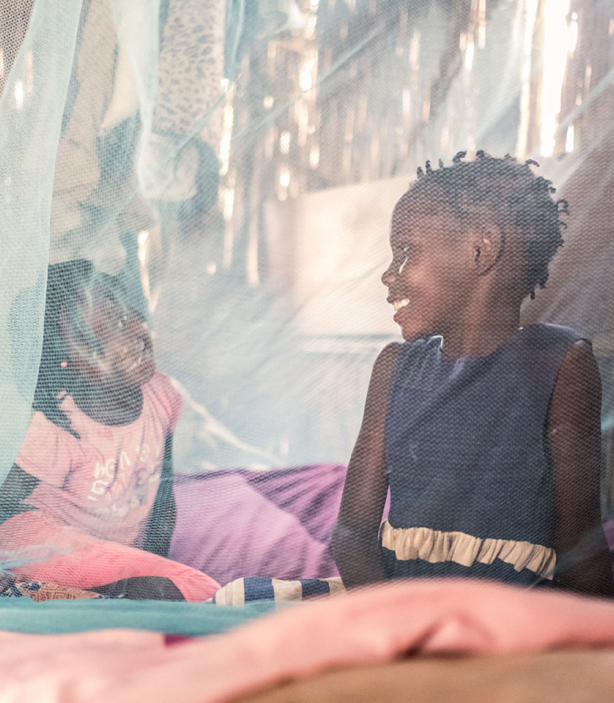
WHO in the African Region accelerated efforts to prevent, control and eliminate communicable diseases posing major public health challenges in most countries in the Region, including HIV, tuberculosis (TB), malaria, viral hepatitis, sexually transmitted infections (STIs) and neglected tropical diseases (NTDs).
Fourteen countries in the Region reached the target of 90% antiretroviral (ARV) coverage for pregnant women towards elimination of mother-to-child transmission of HIV and syphilis.
In June 2019, WHO launched the first African regional hepatitis scorecard showing the large burden of viral hepatitis B and C in the Region and the modest progress towards eliminating hepatitis as a public health threat.
First ever African Hepatitis Summit held in June 2019.
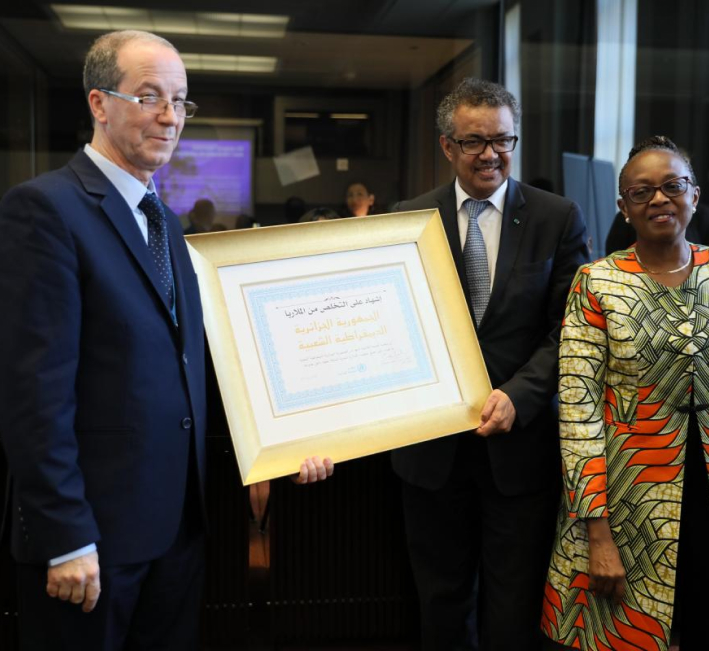
Algeria became the second country in the Region to be certified malaria-free (following Mauritius in 1973).
The Global Fund and WHO in the African Region sign a strategic framework for collaboration to support countries to scale HIV, TB and malaria interventions, strengthen health systems, enhance collaboration to accelerate UHC, and support regional attainment of the SDGs.
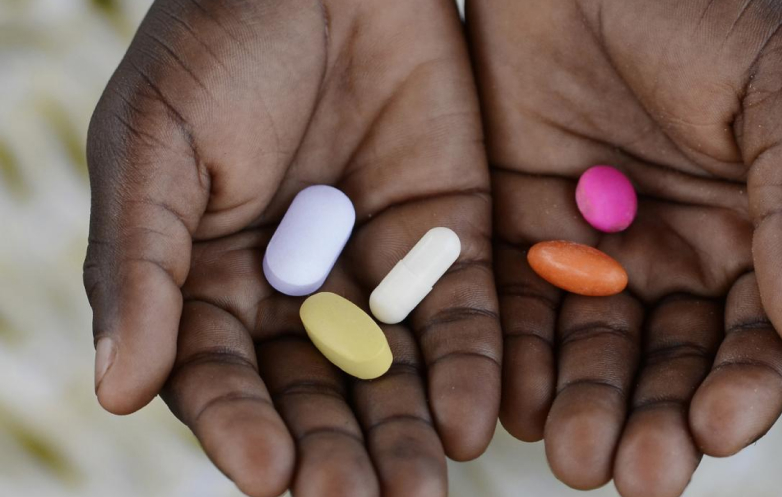
The Expanded Special Project for Elimination of NTDs (ESPEN) made it possible to save 285 280 139 medicine tablets, which had been previously lost or unaccounted for, resulting in savings of US$ 69 740 537 in donated medicines.
The Parliaments of the Democratic Republic of the Congo, Ethiopia and Mauritania passed laws on tobacco control.
Family planning campaign weeks accelerate contraceptive uptake in Burkina Faso.
With WHO's technical assistance, Namibia and South Africa strengthens child injury prevention.
Milestones|2020
Restructuring of the WHO Regional Office to align with the 13th General Programme of Work
WHO launches mentorship program for staff
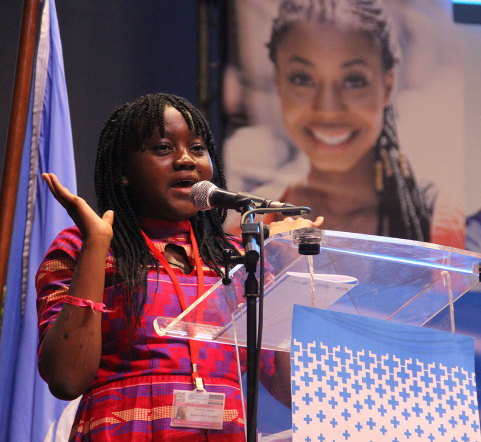
1st cohort for women leadership program launched
African Region declared free of wild-polio virus
As part of the Global WHO Digital Transformation agenda, a new e-workflow system was introduced in AFRO in March 2020 which seeks to simplify and expedite key business and administrative processes to increase efficiencies and enhance new ways of working. The initiative is also reducing WHO environmental footprint.
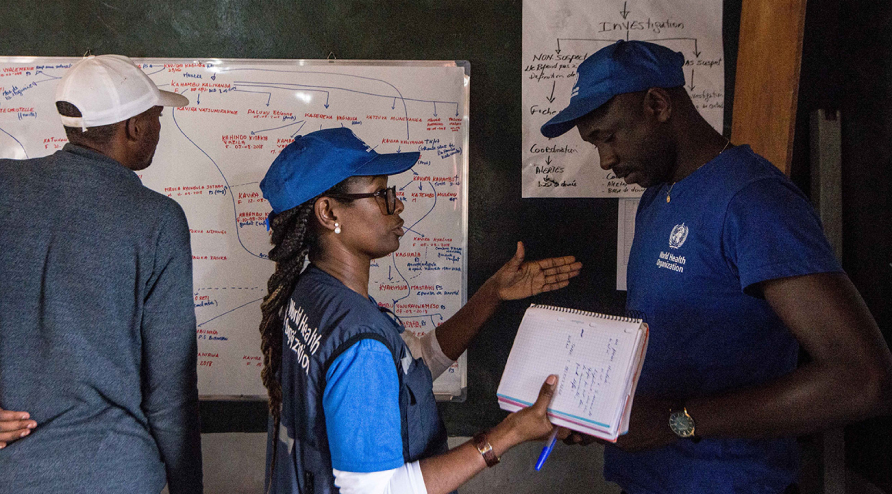
AFRO Team Performance Program pilot launched to enhance team collaboration



